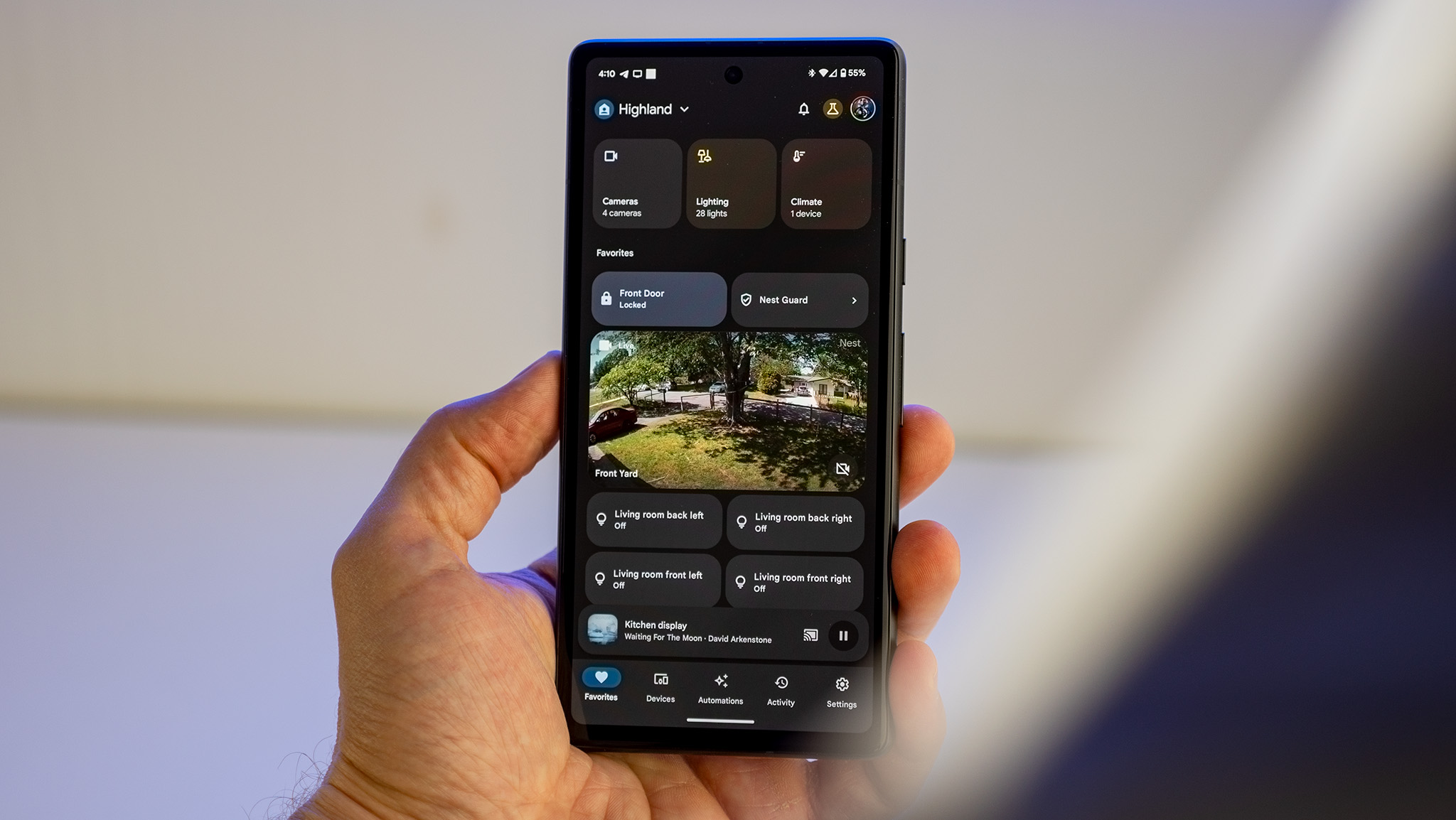Google I/O 2023 Live Blog: Google debuts the Pixel Fold, Pixel 7a, Pixel Tablet, and much more
Pixels, Android 14, and AI, oh my!
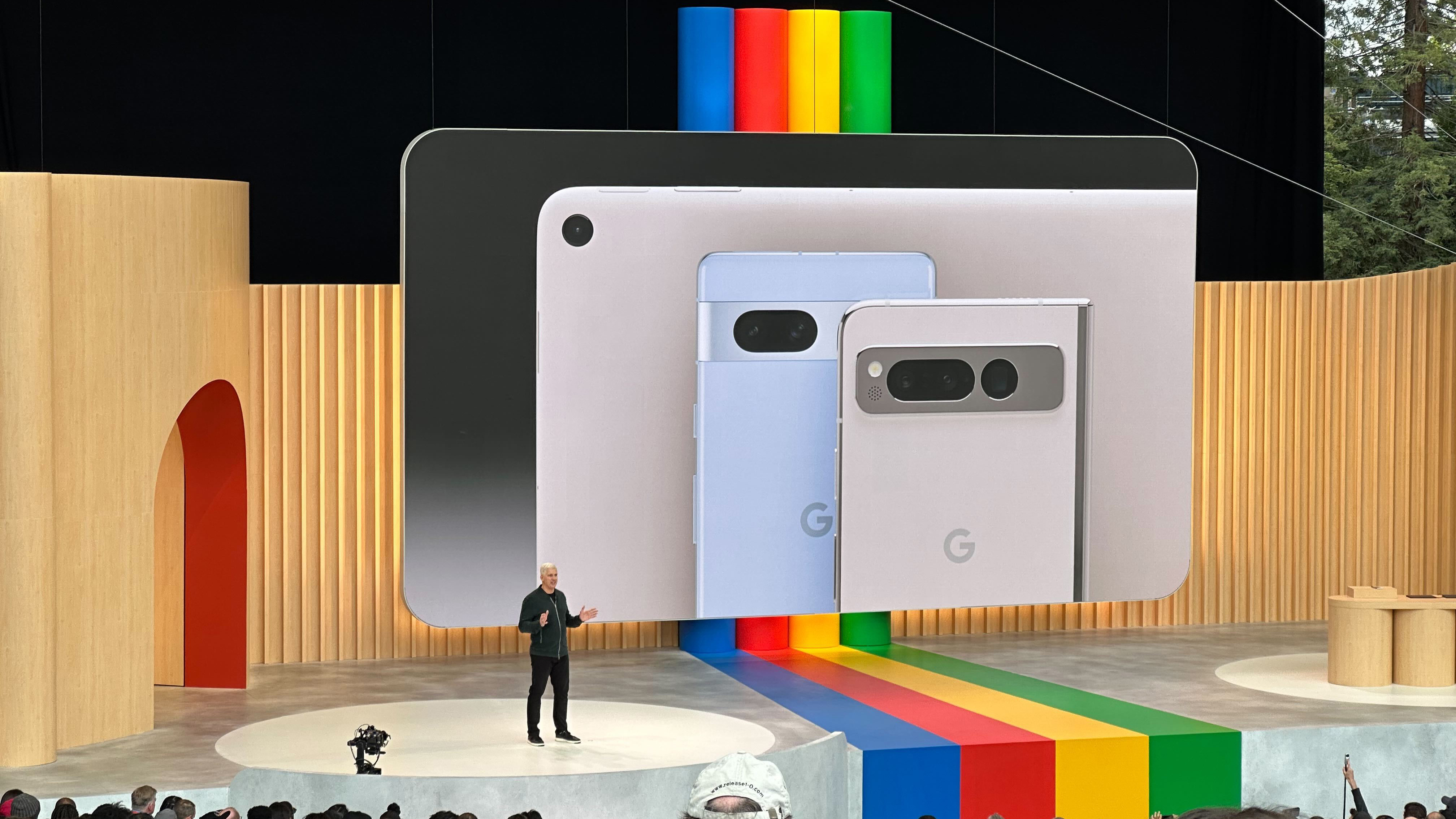
Google I/O has kicked off with the company’s Keynote event. We have a few people on the ground (our editor-in-chief Jeramy Johnson, and Michael Hicks!), but we’ll be watching from afar as Google details its software and hardware plans for the next year. Speaking of which, there’s a pretty good chance that we’ll be seeing some new hardware, and hopefully, Google will have something to say about the future of Bard and Google Assistant. While there are a couple of Android Central staff members on the ground at the Shoreline Amphitheater, you can watch along with us from wherever you are!
As Google I/O is primarily a developer conference, we decided to get the ball rolling with Android 14 goodies. Google released the first Android 14 Developer Preview in February, pushing a few subsequent updates leading up to the release of Android 14 Beta 1 almost a month ago. On the surface, this update doesn’t appear as though there’s much to be excited about, but that honestly couldn’t be further from the truth.
One of the biggest updates expected to arrive in the final version of Android 14 is a new predictive back gesture which first appeared during the Android 13 beta cycle. As Harish explains in his Android 14 Beta 1 hands-on, this feature “basically gives you a preview of the page you'll be returning to once you press the back gesture, so you can then decide if you want to go back or stay on the current page.” However, Harish also notes that “it’s clearly a work in progress” as you can only access it after enabling the feature within the Developer Options.
While the predictive back gesture is set to change the way you navigate between apps on your phone, Android 14 could implement major changes that will benefit all Android users. One of the biggest complaints when using many of the best Android phones is how aggressive the background app management is. You could be listening to a playlist on YouTube Music, only to have the app seemingly closed for no reason. Android 14 is introducing new APIs to improve the “restrictions on foreground services and background work.” And it seems that Samsung phones will be the first to reap the benefits when One UI 6.0 launches later this year, based on Android 14.
We expect Google to launch the next Android 14 Beta within the next few days, and we wouldn’t be surprised if it actually became available shortly after the Keynote has concluded. From there, we’ll see at least one more traditional Beta release, before Google transitions to the “Platform Stability” portion of the beta program. Provided that everything goes according to plan, the final version of Android 14 could make its way to a Pixel near you sometime in August. But if you’re like us and want to be on the bleeding edge of what Google is working on, and own a compatible Pixel phone, then you can install the Android 14 beta now.
Now let’s pivot over to hardware, starting off with the Pixel Tablet. Google’s first tablet since the Pixel Slate back in 2018 was first shown off at last year’s Google I/O, sparking a lot of excitement for tablet enthusiasts. However, even after making an appearance during the Pixel 7 hardware event, it’s a year later and the Pixel Tablet still isn’t available. We’re expecting that to change during I/O 2023, as Google is likely to announce pricing and availability for its latest device, and it could even be available just in time for the summer.
As a refresher, the Pixel Tablet will be powered by the Tensor G2 chip, along with an 11-inch display, and feature a design reminiscent of the Pixel 5 with a matte finish and a “premium nanoceramic finish.” While we’re already excited enough for a Pixel-branded tablet, that’s not the “fun” part of the Pixel Tablet. That comes in the form of a new Charging Speaker Dock, allowing you to magnetically place your Pixel Tablet onto it, and transform it into an ultra-powerful Nest Hub Max.
As a refresher, the Pixel Tablet will be powered by the Tensor G2 chip, along with an 11-inch display, and feature a design reminiscent of the Pixel 5 with a matte finish and a “premium nanoceramic finish.” While we’re already excited enough for a Pixel-branded tablet, that’s not the “fun” part of the Pixel Tablet. That comes in the form of a new Charging Speaker Dock, allowing you to magnetically place your Pixel Tablet onto it, and transform it into an ultra-powerful Nest Hub Max.
A presentation during the hardware portion of the Google I/O 2023 Keynote would be the perfect time for Google to finally announce price and availability. Recent leaks suggest a price tag of around $600 for the tablet and $130 for the Charging Speaker Dock. However, even if that’s the case, we’re hoping that Google offers some kind of bundle so you don’t have to purchase them separately.
Rumors about Google’s latest budget phone started cropping up all the way back in November 2022, and it’s just been a snowball effect since then. There was even a super-early hands-on video in January 2023, which allegedly confirmed that the Pixel 7a will offer a 90Hz refresh rate, something that the Pixel 6a was technically capable of, but not in an official capacity. In what seems to be a yearly occurrence, a Pixel 7a prototype popped up on eBay, before ultimately going unsold under the original listing. At one point, however, bids for this non-working prototype were as high as $2,700 before bids were withdrawn.
It wasn’t much longer before even more details about the Pixel 7a were revealed, as another set of hands-on videos and images appeared for the device. This all but confirmed what the Pixel 7a would have to offer in the hardware department, sporting a 6.1-inch OLED display complete with a 90Hz refresh rate. The Tensor G2 is said to be at the helm, providing the same level of processing power as the Pixel 7 and 7 Pro, along with a dual-camera setup and launching with Android 13.
Much of what was leaked, were upgrades to the Pixel 7a that we expected Google to make. What wasn’t expected was the mention of Google upgrading the camera hardware, seemingly to include a 64MP Sony IMX787 main wide-angle lens and a 12MP IMX712 ultrawide sensor. With the Pixel 6a, Google is using its “tried and true” 12.2MP wide-angle lens, along with a 12MP ultrawide camera. The 12.2MP main camera has been around for years in Pixel hardware, so if Google actually upgrades this with an all-new sensor, it would be a big deal.
This upgrade, paired with the 90Hz display would be enough to warrant the rumored $50 price increase for the Pixel 7a. Google’s current budget phone, the Pixel 6a, retails for $449 but it has seemingly been on sale ever since it was announced. And we’ve also seen deals that bring the Pixel 7 down to just $349, so it’s definitely going to be interesting to see what Google’s strategy will be moving forward, presumably ahead of the Pixel 8 launch later this year.
Another Pixel 7a hands-on leak gave us a glimpse at the different color options that would presumably be available when the phone launches. In addition to the boring black/gray colorway, a new light blue variant appeared, giving us some big “Barely Blue” Pixel 4a vibes. But even more excitedly, we got our first look at the rumored coral color, reminding us of the orange Pixel 4 and 4 XL. Google loves throwing in an odd-ball color with every new phone release, and we won’t be surprised if the Coral Pixel 7a ends up as the most popular one.
Okay, now for the one that we’ve all been waiting for; the Pixel Fold. We’ve been seeing and hearing rumors about a potential Pixel foldable device for the past few years, following the immense rise in popularity of foldable phones across different markets around the world. While other regions of the world can enjoy foldable phones from Xiaomi, Huawei, Oppo, and others, those of us here in the States are limited to the likes of the Samsung Galaxy Z Fold line. Thankfully, that will no longer be the case, as Google is set to announce and unveil its first foldable phone at I/O 2023.
Thanks to various leaked renders that have appeared over the past few years, we already had a pretty good idea that Google would be taking a different design approach with its foldable phone. Instead of an extremely-tall cover screen, as seen with the Galaxy Z Fold 4, the Pixel Fold will look more like the Oppo Find N2. For reference, the Find N2 sports a 5.54-inch cover screen that unfolds to reveal a 7.1-inch inner screen with a 1920 x 1792 aspect ratio. Meanwhile, Samsung’s Fold 4 uses a 6.2-inch cover screen with a 7.6-inch inner display providing a 21.6:18 aspect ratio.
According to leaks, we could see the Pixel Fold launched with a 5.8-inch cover screen along with a 7.6-inch inner screen. In doing so, will make the phone more comfortable to use when it’s closed, and likely won’t leave you feeling the need to open the phone just so that your hands don’t feel too cramped. On the bright side, it doesn’t seem that Google is skimping on the screens, as both the cover display and inner screen will offer a 120Hz variable refresh rate, similar to what we have on the Galaxy Z Fold 4 and many of the best Android phones.
Looking around the rest of the phone, it’s clear that this will definitely be a Pixel phone, as the cyborg-like camera bar will be equipped on the back. This is said to house a triple camera setup similar to what you’ll find on the Pixel 7 Pro. This camera system is rumored to feature a 64MP Sony IMX787 main lens, a 12MP Sony IMX386 ultrawide sensor, and a 10.8MP telephoto lens sporting a 5x optical zoom. All of this paired with Google’s excellent camera software and additional features should instantly place the Pixel Fold among the best smartphones, and could even outperform the Galaxy Z Fold 4.
Just about 30 MINS TO GO and our EIC Jeramy Johnson and Michael Hicks are on the ground!
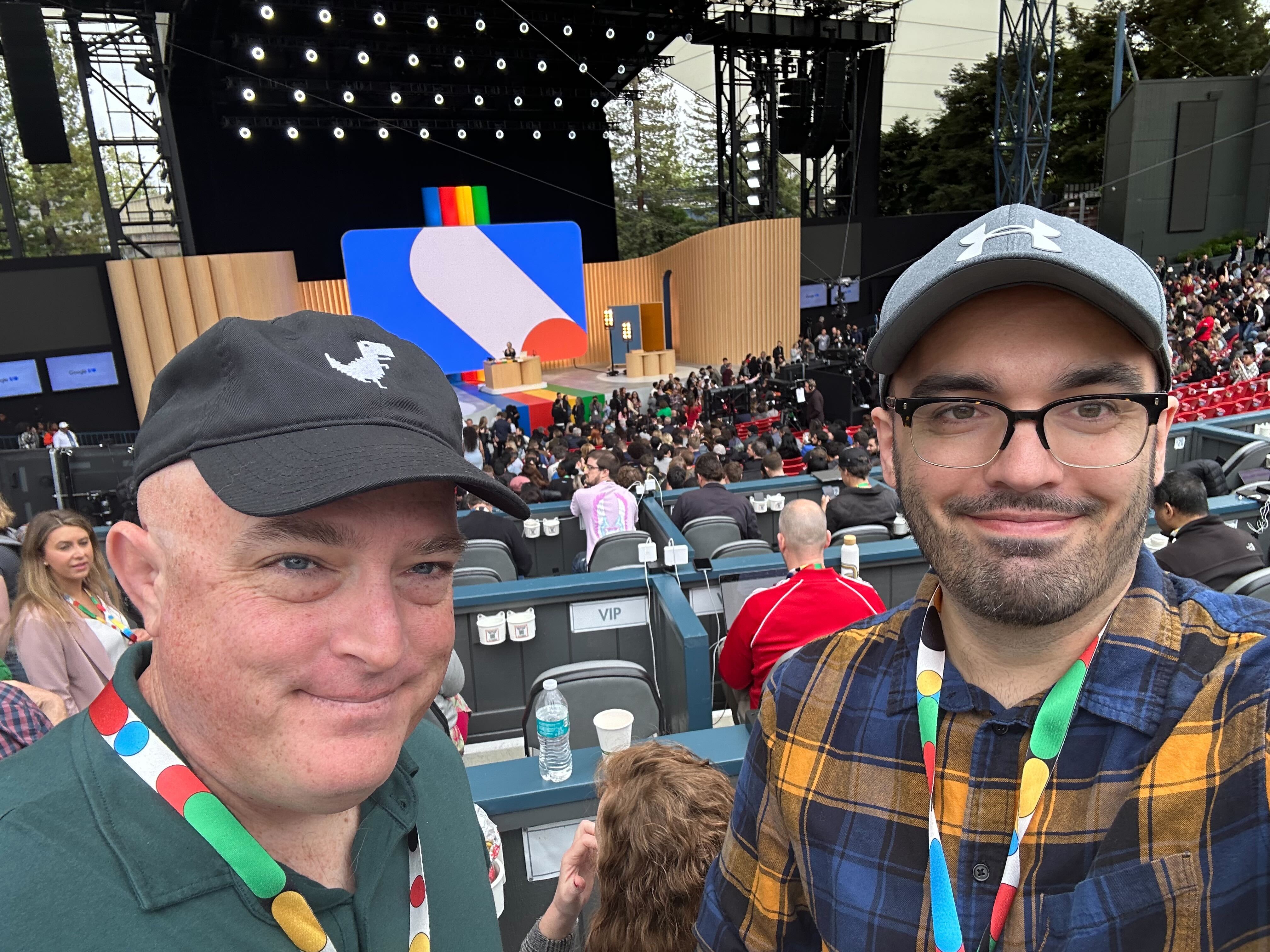
Some of the other specs that we’re expecting to see in the Pixel Fold include Google’s Tensor G2 chip powering the device, paired with 12GB of RAM and either 256GB or 512GB of non-expandable storage. This could be seen as a disappointment to some, as a brand new smartphone would be the perfect time for a new mobile platform to be introduced, but it seems that a potential Tensor G3 isn’t in the cards just yet. Nevertheless, it’s definitely going to be interesting to see how the Tensor G2 in the Pixel Fold holds up against the Galaxy Z Fold 4 and the rumored upcoming Galaxy Z Fold 5, which is likely to be powered by the excellent Snapdragon 8 Gen 2 SoC.
From Michael - there are some really creepy generative AI visuals
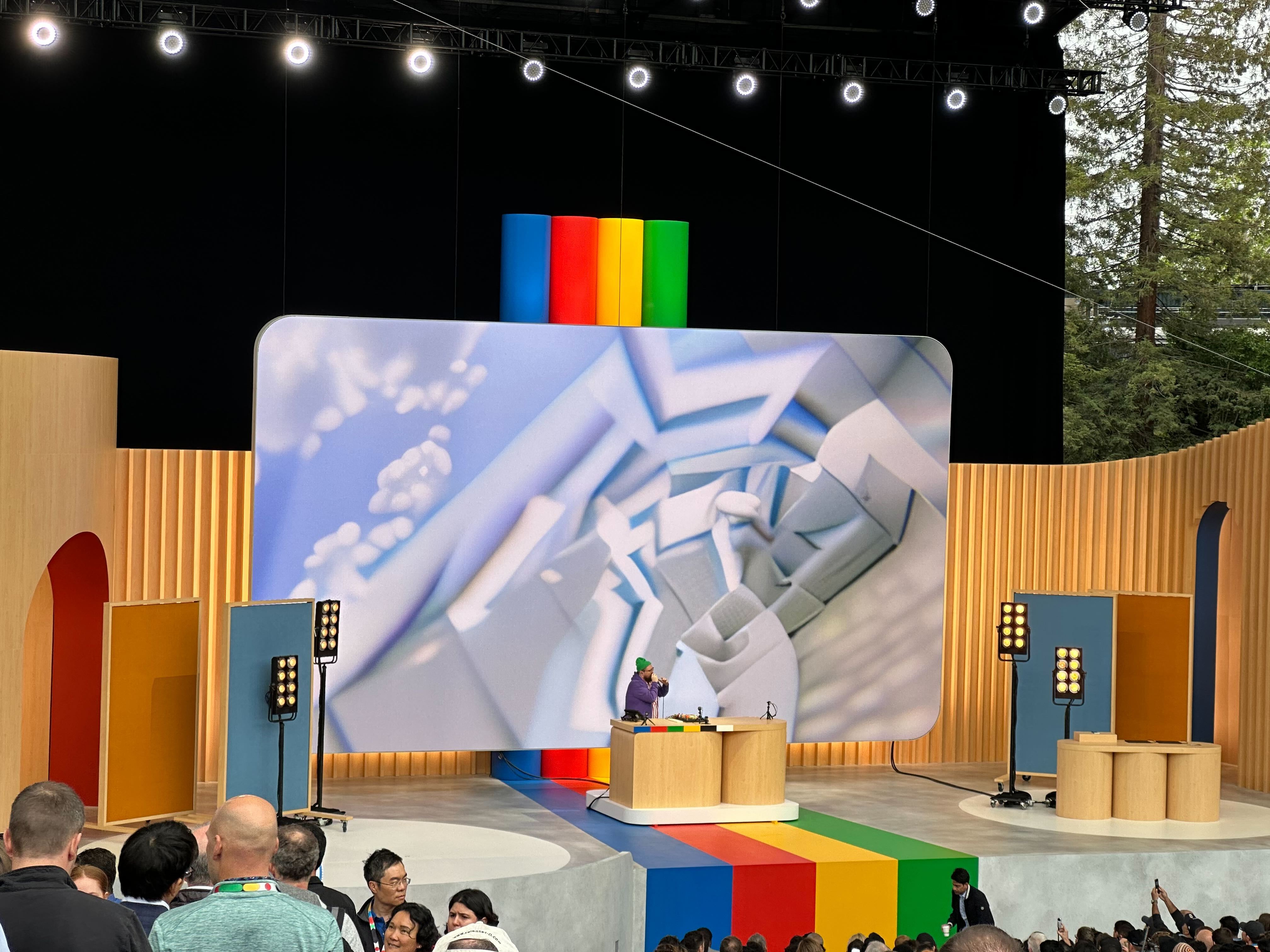
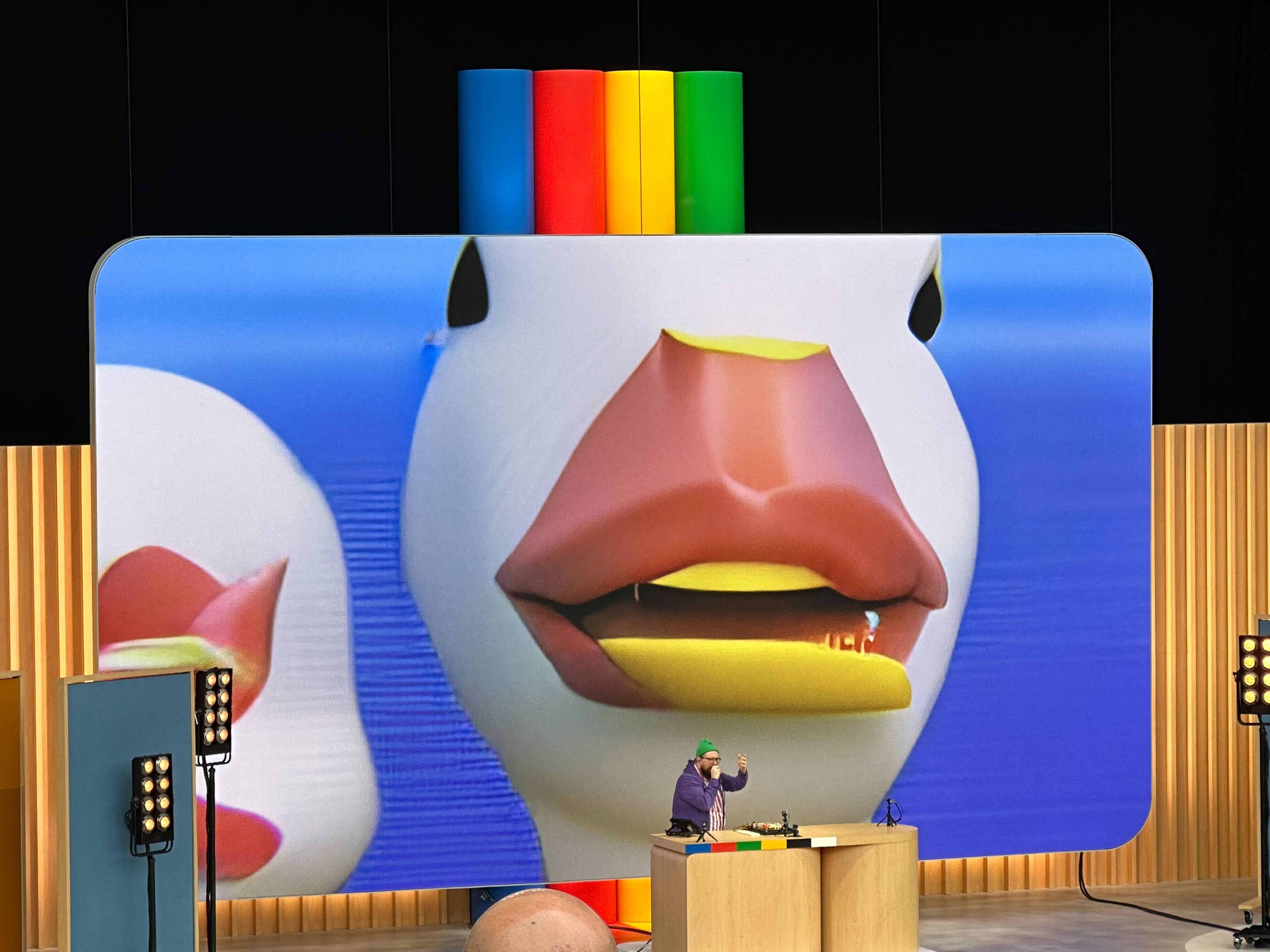
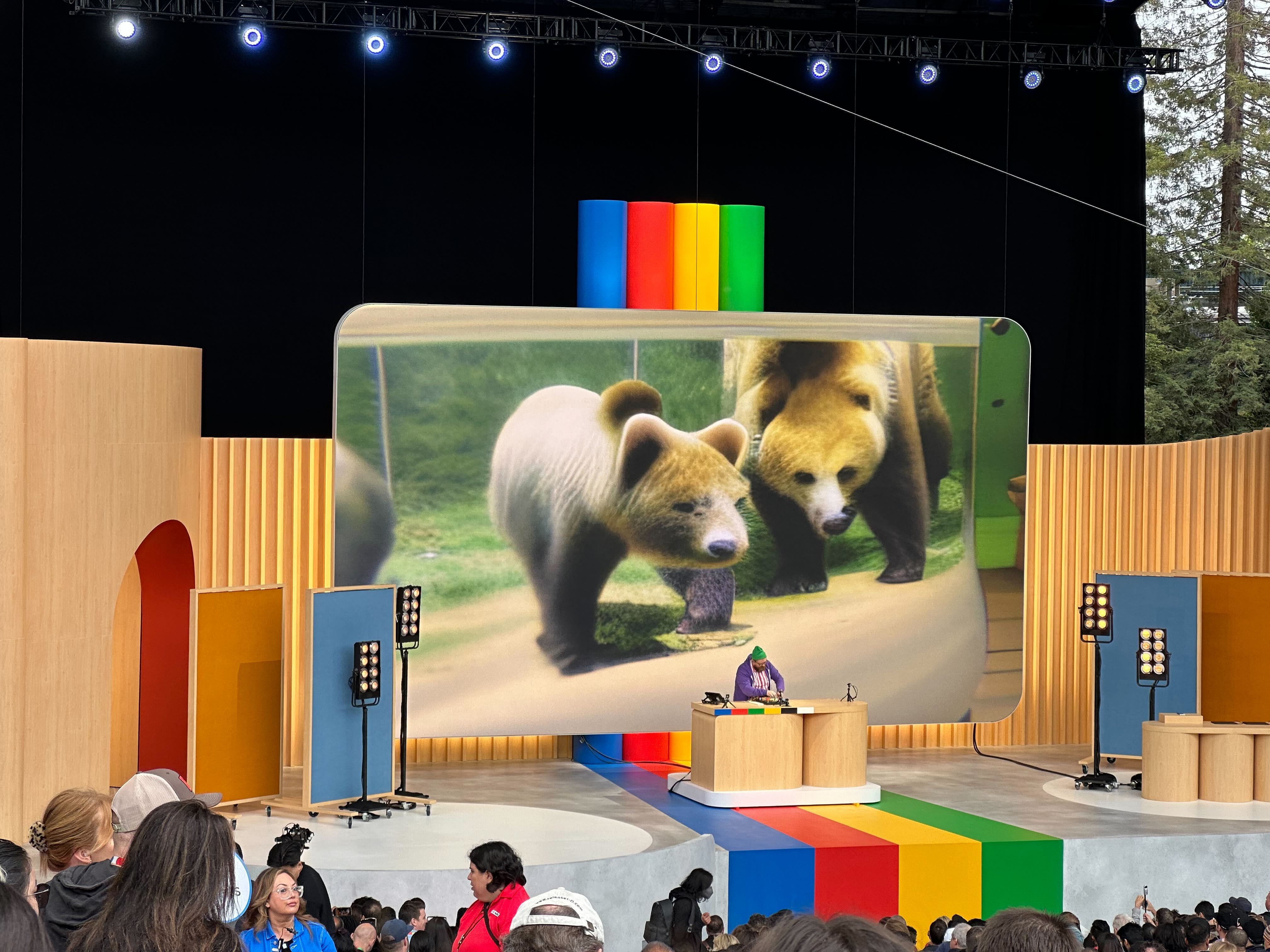
Provided that the various leaks come to fruition, there’s no doubt that the Pixel Fold will be a formidable device and could still end up as one of the best phones of the year. However, there’s one major sticking point that could turn a lot of people off from considering Google’s first foldable phone, and that’s the price. Recent rumors suggest the 256GB Pixel Fold will cost around $1,700, bringing it right in line with Samsung’s flagship foldable phone. That’s quite a steep price to pay, no matter who makes the device, let alone one that’s using a slightly-outdated chipset and for a first-generation device.
We are about 10 mins away guys and honestly this DJ is awful...no hate...like what is actually happening???
Ok I was harsh, that music was cool cuz it used Bard...I won't be that mean anymore...promise
OK GUYS I/O HAS STARTED!!! Some more images of Bard music
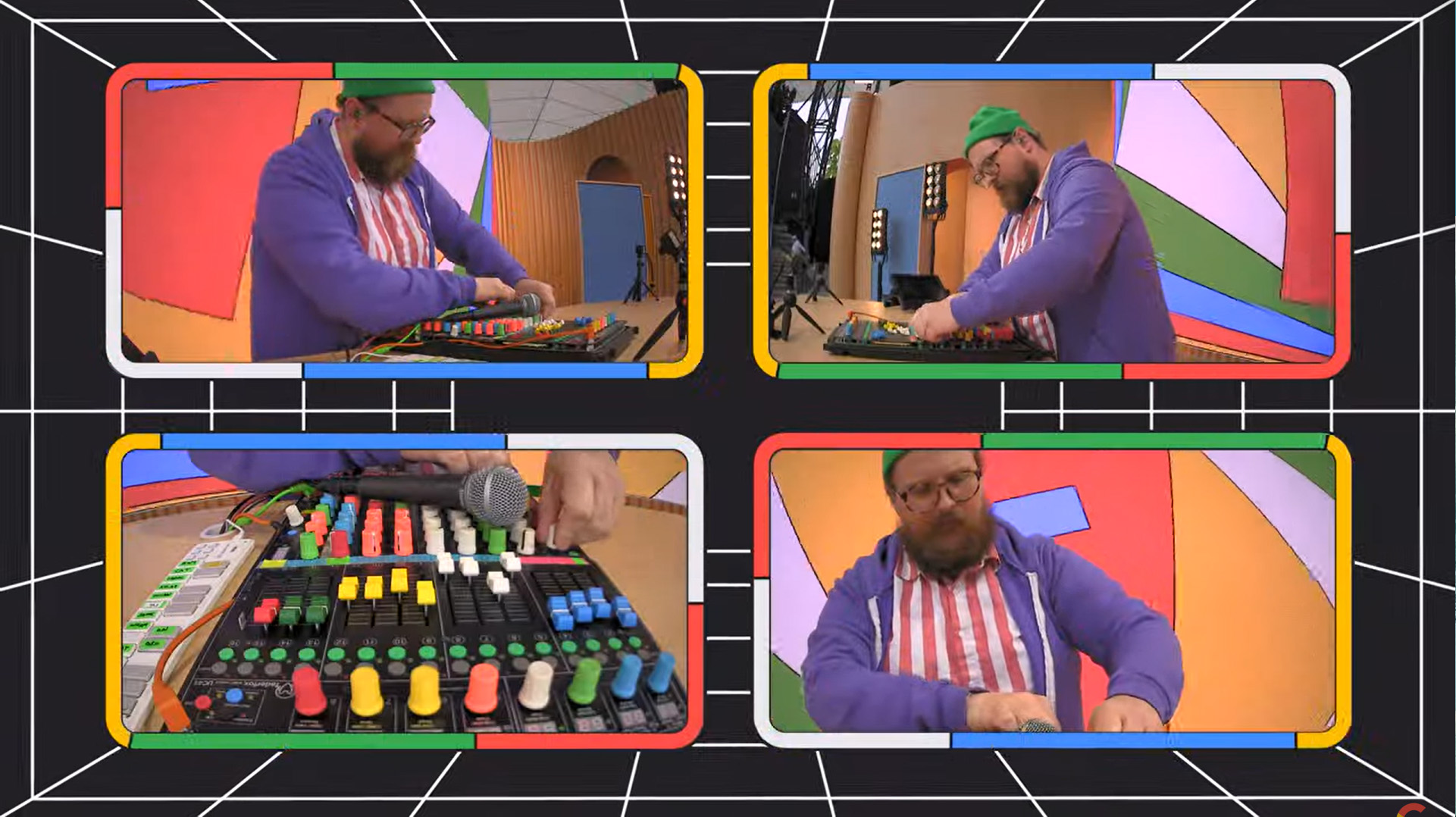
If you wanna follow and play with us, here's our Bingo card!!
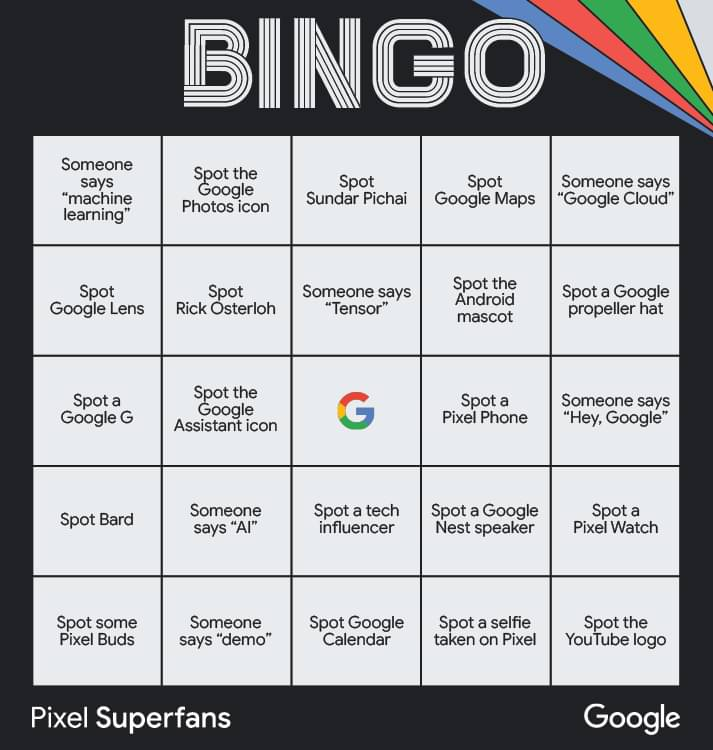
OH MY GOD THIS MAGIC ERASER STUFF IS UNREAL
Mr sundar pichai is looking rather fresh today. Can’t help but remind you all that we are born on the same day, and yes my very Indian father never fails to remind me of this. #GoogleIO pic.twitter.com/qYlN8pTZMHMay 10, 2023
A Google Bard app isn't coming to your phone, but it's coming to your apps!
Google Workspace's generative AI now has a name, dubbed Duet AI!
Google expands dark web reports to Gmail users, launches 'About this image' and more
There she is folks the Pixel 7a!
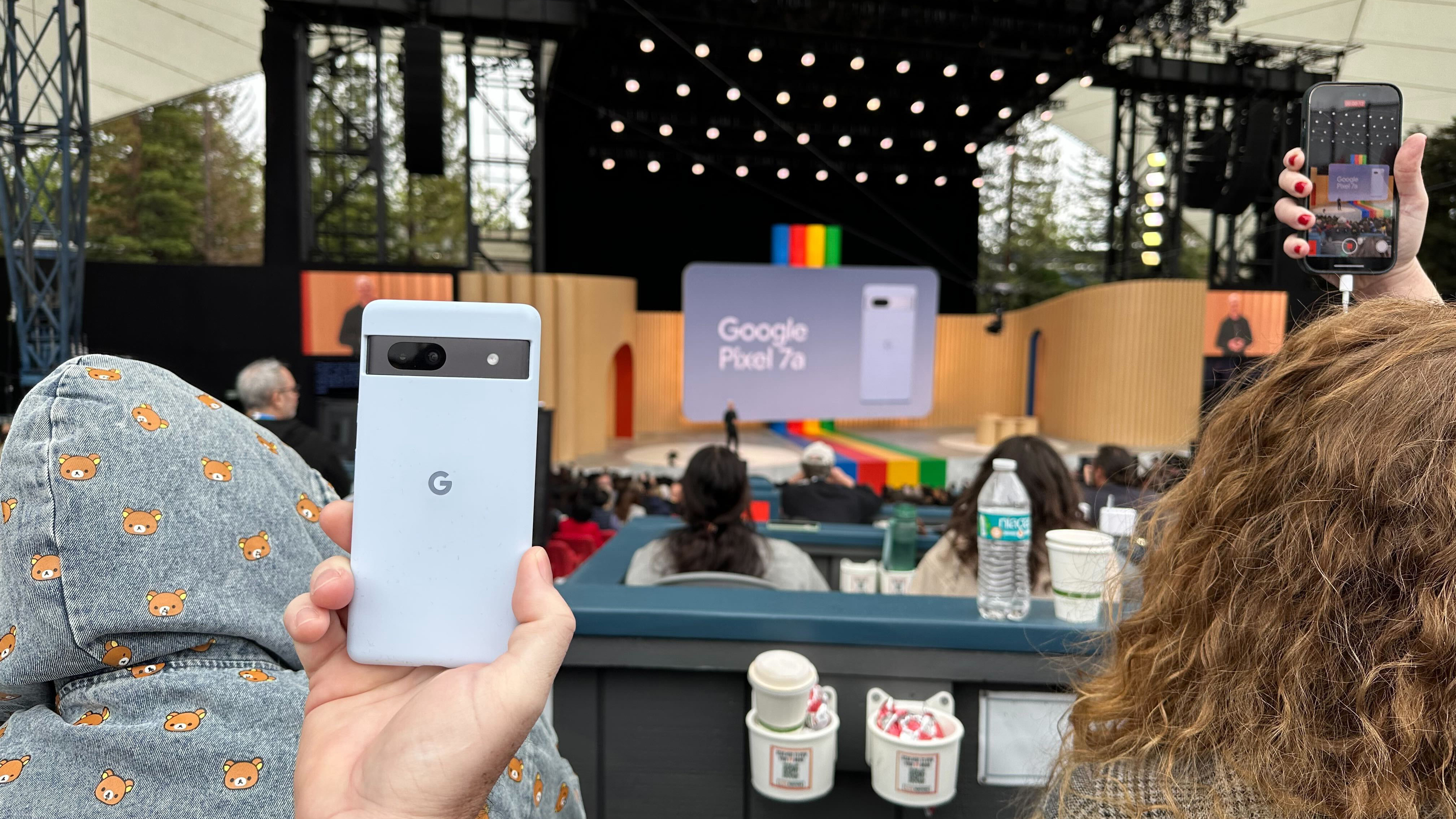
Google reminds us that a Samsung Gear VR heir running Android is coming in 2023
and here's our 7a review!!
The Pixel 7a might be the best Pixel Google has ever built. The price-to-performance ratio is off the charts good and the camera is better than ever thanks to a huge camera hardware upgrade. Unless you need better battery life or like to zoom beyond 5x, there's no reason to spend your $500 elsewhere.
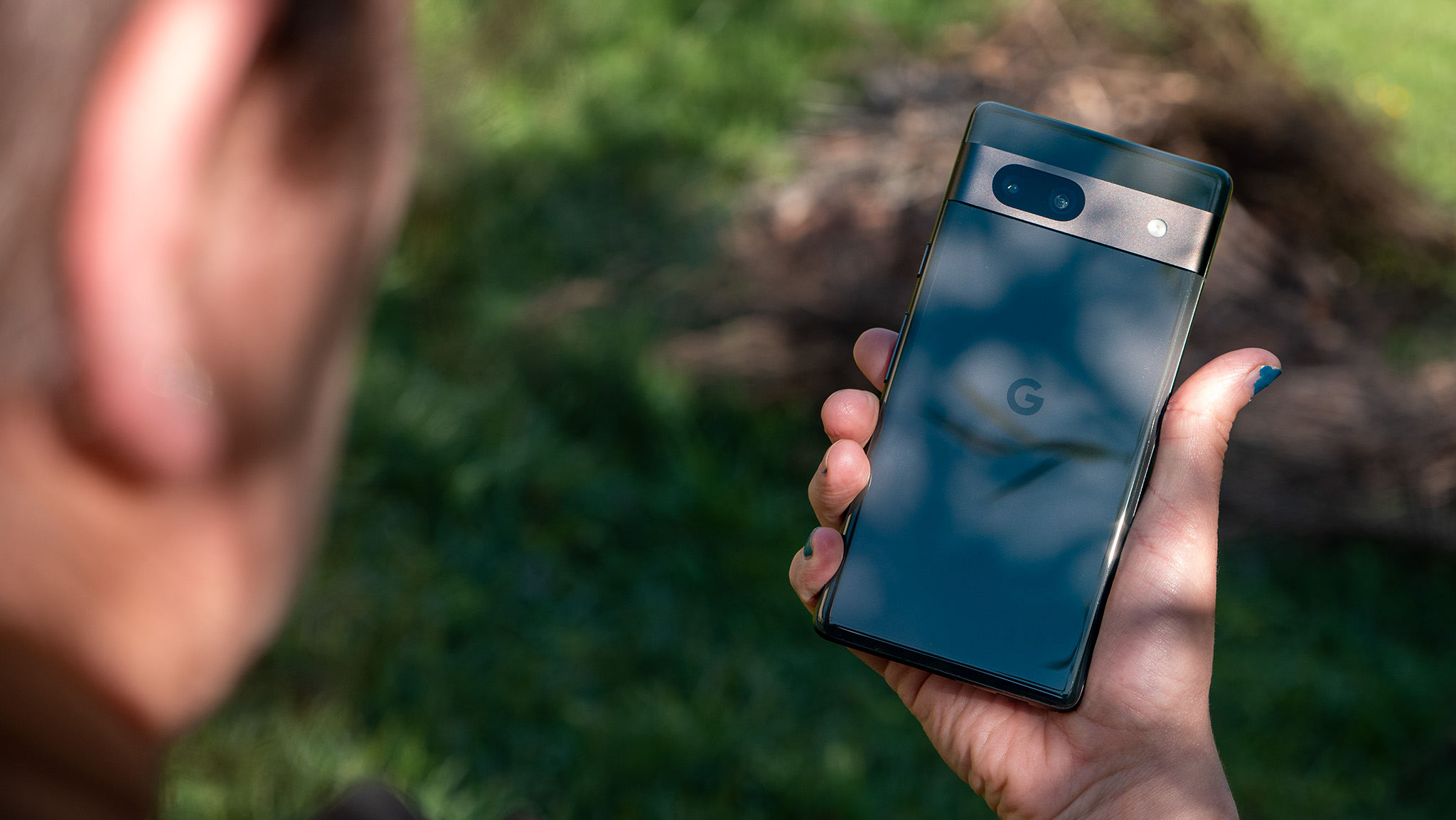
Are you ready to upgrade and want to get the new Pixel 7a? We have all the details about any deals and where you can get one starting today! It's definitely an impressive phone and gets almost the same experience as the Pixel 7 Pro at a fraction of the price.
I can hardly contain my excitment for the Pixel Fold. Samsung's Galaxy Z Fold 4 has been at my side since it launched, but there's just something about the Pixel UI that has me even more excited.
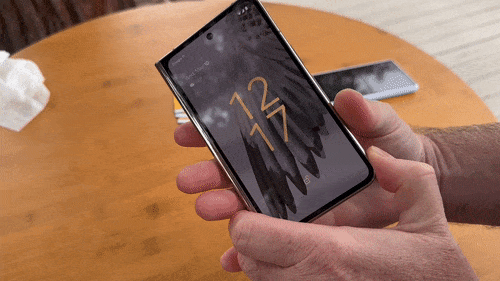
Plus, just look at how sleek Google's first foldable phone is.
Arguably the biggest problem with the Pixel Fold is the asking price. $1,799 is pretty steep, especially when you consider that Samsung's Galaxy Z Fold 4 costs the same amount.
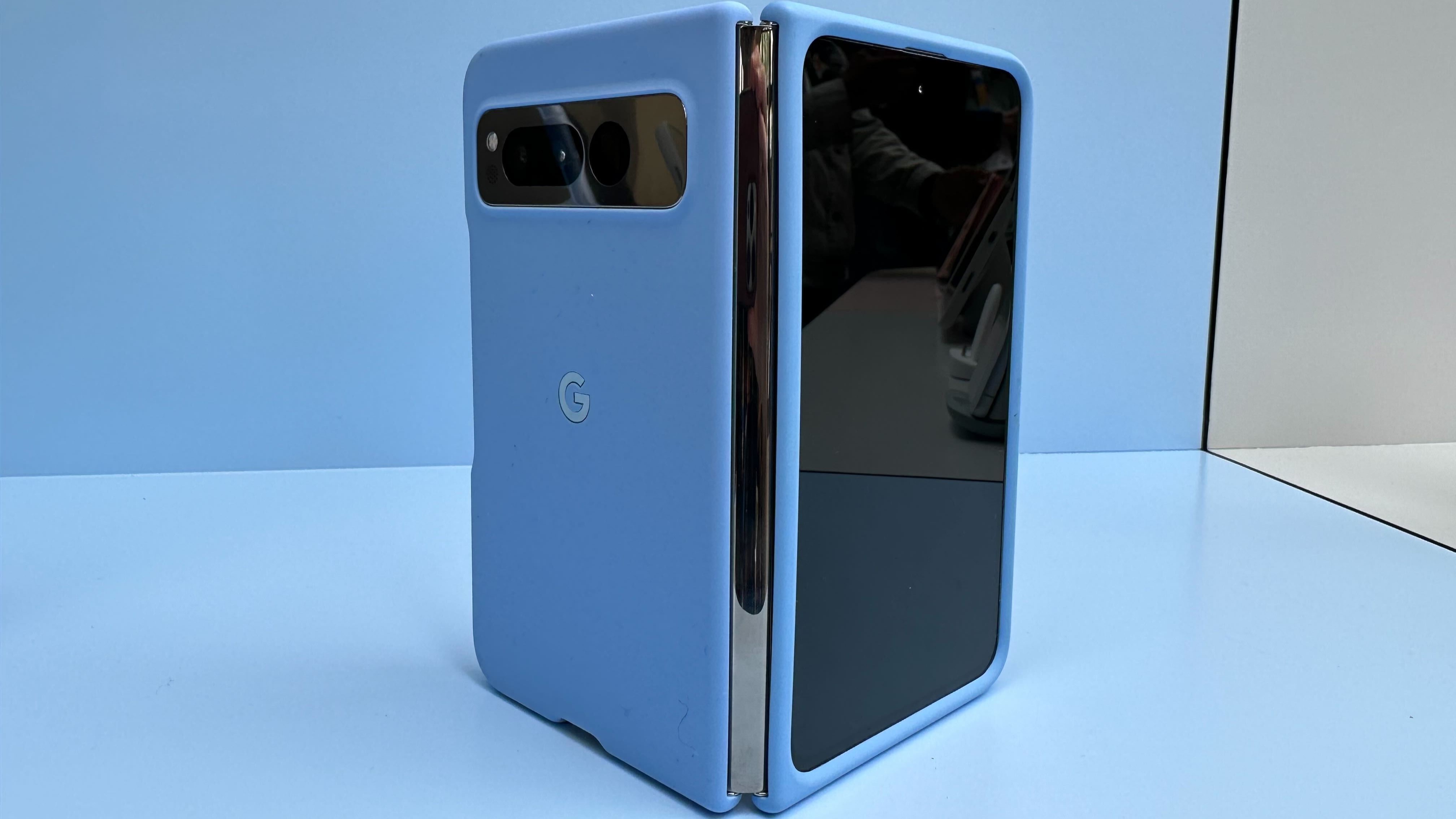
But it does seem as though Google has created an incredibly sleek and well-built device, even with this being the company's first attempt at a foldable. Now, we just have to hope the software matches up with what we saw during the announcement.
As a refresher, the Pixel Fold is powered by the same Tensor G2 that you'll find in the Pixel 7 Pro and the all-new Pixel 7a. It features a total of five different cameras, with one on the cover screen, one hidden in the bezel of the inner display, and then a trio of sensors on the back.
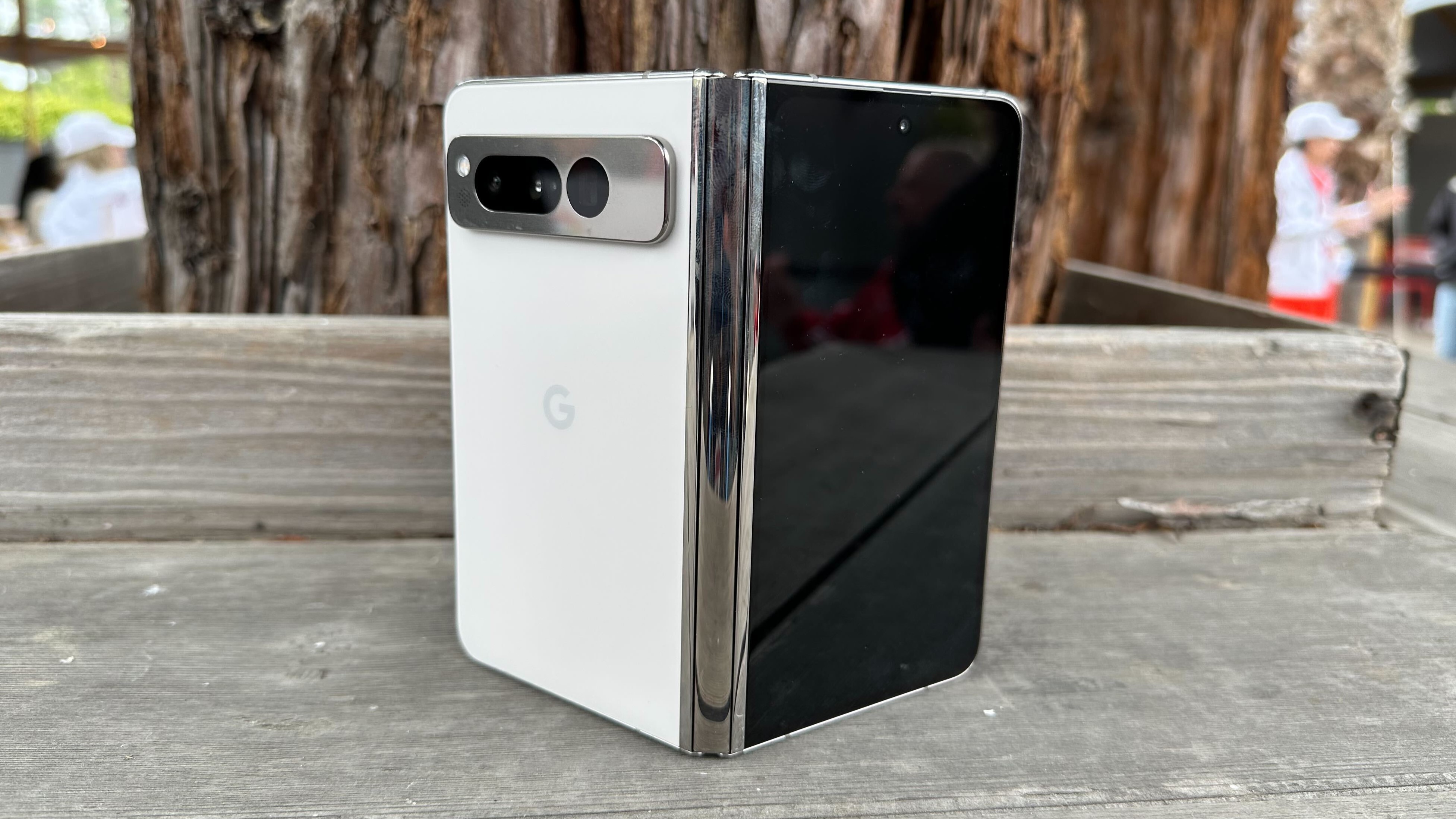
Google's first foldable comes with either 256GB or 512GB of storage, and offers a different layout compared to the Galaxy Z Fold 4. The 5.8-inch Cover Screen should make for a more traditional smartphone experience, while the 7.6-inch inner OLED panel is perfect for multitasking, content viewing, and more.
There are a few rumors flying around that the Pixel Fold doesn't actually open all the way up to be flat. Thankfully, these rumors are incorrect, and we can confirm that the Pixel Fold does, indeed, open up to be totally flat.
The confusion apparently comes with Google's custom 180-degree hinge design which is designed to stay open at any angle similar to Flex Mode on Samsung's Galaxy Z Fold and Flip lines. Google demonstrated this functionality on stage and calls it Tabletop Mode. What's confusing some folks at I/O 2023 is that it takes a bit more effort to open the Pixel Fold all the way versus some other foldable phones.
But if you do decide to open it all the way up and try to lay it flat on the table, note that the camera hump on the back will keep it raised up a bit from the surface. This seems to be a better design than the off-center camera island on phones like the Galaxy Z Fold 4 which wobble an awful lot when laying flat on a table. By comparison, Google's horizontal camera island keeps things a lot more stable.
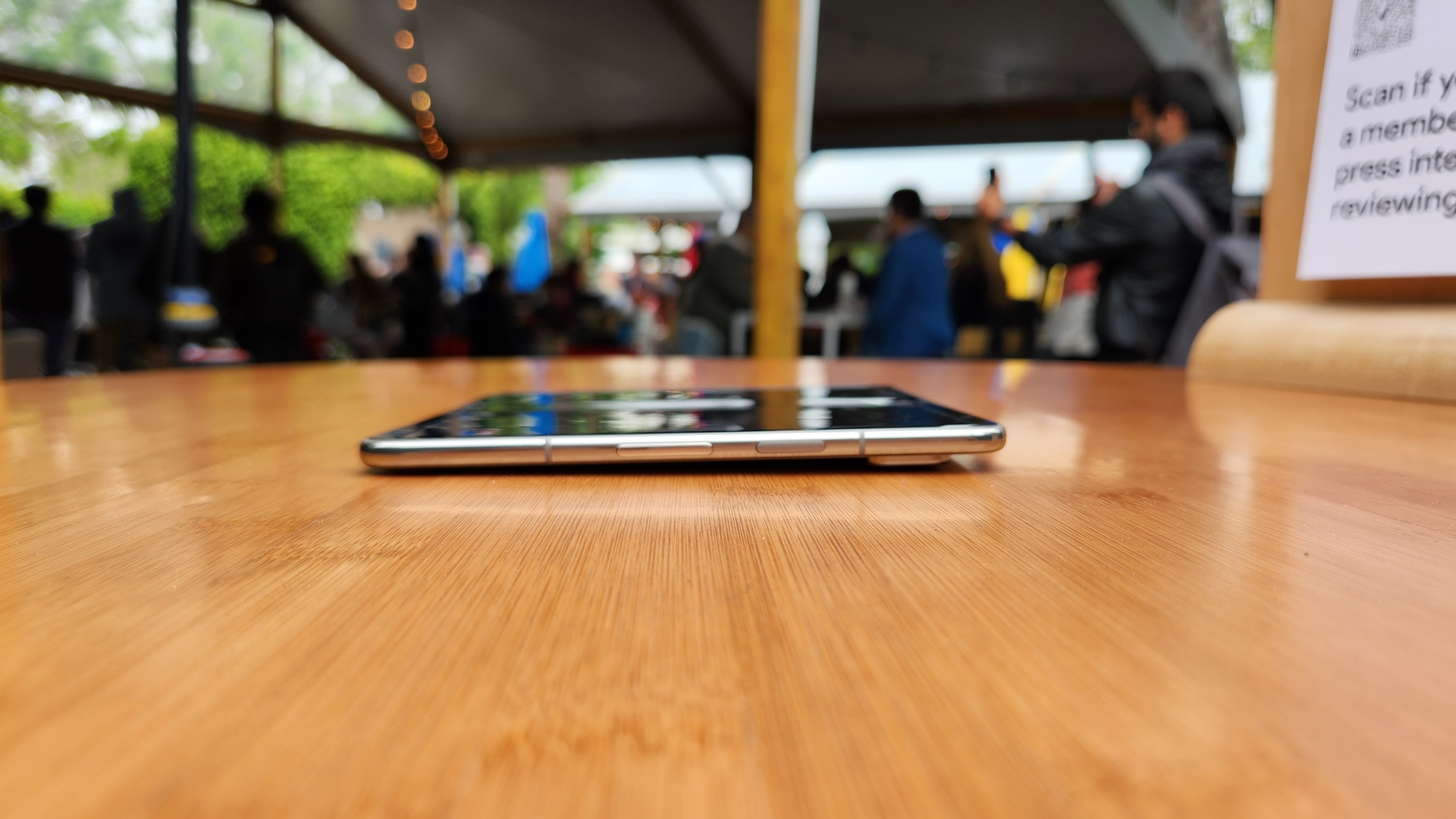
Our Pixel Fold hands-on is officially live with both Michael and Jeramy's impressions. Since both went to the show for Android Central, it only made sense to hear what both of them had to say. It was particularly satisfying to read Michael's impressions as he hadn't yet had the chance to try a foldable phone.
Some of my favorite parts of the hands-on included his comments on the hinge (we posted about that here earlier), the fact that the crease is less pronounced than on Samsung's foldables, and the comments on the camera island on the back.
It's also great to see Google pushing the boundaries of camera tech on foldables since the rumors point to no real upgrades for the Z Fold 5's cameras.
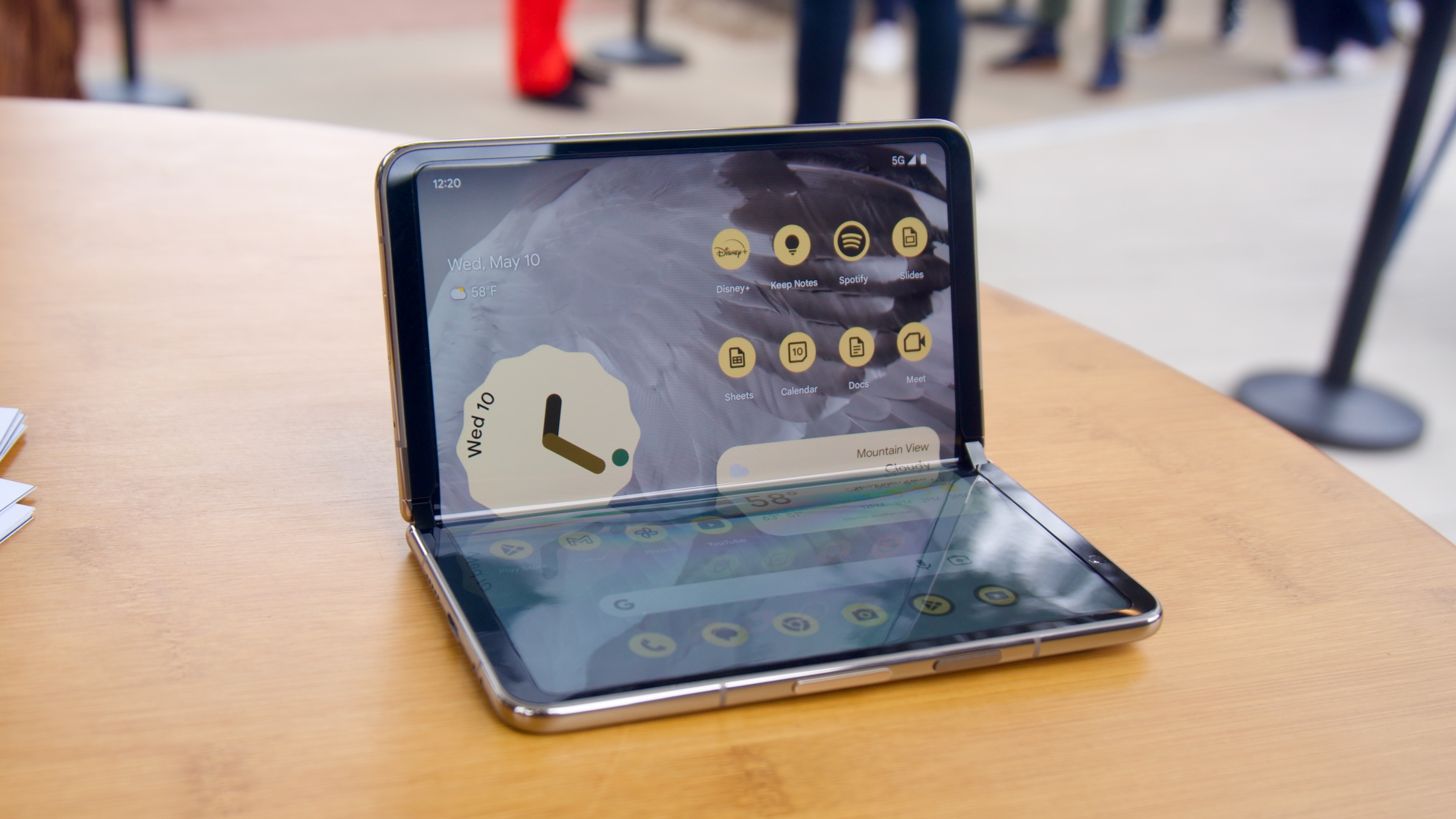
Let's talk a bit about the Pixel Tablet and how Google positions this as a different type of tablet than most. Starting off, the company isn't selling an official keyboard folio case for it at launch. Google says they're working on something like this but, for now, you can use a Bluetooth keyboard for tablets or just stick with the on-screen keyboard.
So if this isn't a "laptop replacement" as many other tablets have tried to position themselves, what could it be? From what we can tell, Google seems to be positioning this as an alternative to your Nest Hub and your TV, among other things.
Paramount to this definition is the included dock which ensures that the tablet is charged at all times. Google said that it determined this was the most crucial point for consumers — in addition to having multiple accounts on a single device — after years of market research.
Being able to dock the Pixel Tablet on a magnetic dock isn't just easy, it promises that the tablet will be ready to go whenever you are. After all, most tablets sit on a table or in a storage bench until someone wants to use them and, unfortunately, this means most tablets are probably dead — or close to dead — by the time you pick one up.
Not only that, but Google just released a brand new Google Home app that has a custom UI made just for the Pixel Tablet that lets users instantly adjust smart home devices without even unlocking the tablet. When docked, the Pixel Tablet goes into "Hub Mode" and looks nearly identical to a Nest Hub with a Google Photos camera roll and that fancy new Google Home control center right at the forefront.
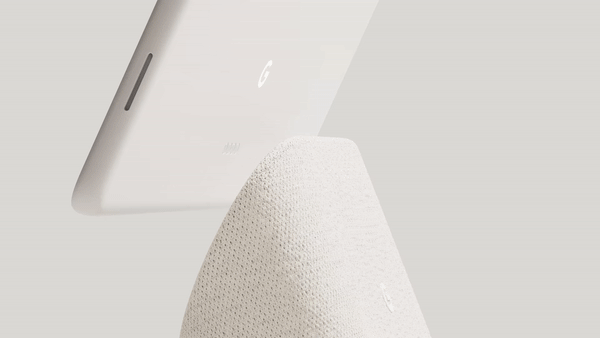
Let's switch gears back to the Pixel Fold for a minute. While Google looks to be pushing some significant boundaries on both hardware and software fronts, the company is being extremely conservative about where its first foldable is actually sold.
If you're looking to buy a Pixel Fold through official channels — meaning, ones that will honor product warranties if something goes wrong — you need to be living in the U.S., UK, Germany, or Japan.
Why this weird smattering of countries? Our managing editor, Shruti Shekar, got to the bottom of it and found out why Google is only releasing the Pixel Fold in a few countries.
The problem is that this does little to assuage the irritation our resident phones editor and expert, Harish Jonnalagadda, has. Harish lives in India and he's pissed that he won't be able to buy what could be the best foldable phone of 2023.
I can't say I blame him but there's always hope for a second-generation Pixel Fold to be more widely released. We've seen it with Google's other Pixel phones in the past and I'd be surprised to see it change with this one.

Plenty of buzz at this year's Google I/O revolved around AI or hardware, but you shouldn't miss some of the big software announcements Google made.
The new Google Home app is a work of art any which way you look at it, and it's now officially available for every Google Home user to check out. Among a host of new features is the wonderful favorites UI that appears any time you launch the app.
This fully-customizable section lets you prioritize the smart home devices that you use most. That means making it effortless to adjust your thermostat or living room lights — something most people assuredly use every day — versus that one light in the basement that you might use twice a month.
Plus, older Nest Cams are finally getting ported over to the new Google Home app now that nearly all the features people love are finally in the app. Google is still working on porting over all the existing Nest features — like recording manual clips — but the new vertical events timeline and the ability to see all your cameras live the second you open the Google Home app are massive advantages for the redesign.
Wear OS folks are also seeing some love here with quick favorites tiles on their watch plus camera controls coming soon so you don't have to look at your phone when someone shows up at the door. The tablet version is also seeing huge upgrades and the upcoming Pixel Tablet even features a brand new Hub Mode with the new Google Home UI, accessible without even unlocking the tablet.
